Welcome Remarks
 Erin Driver-Linn, PhD
Erin Driver-Linn, PhD
Dean for Education, Lecturer in Social and Behavioral Sciences
Erin Driver-Linn, PhD, is Dean for Education and a member of the faculty in the Department of Social and Behavioral Sciences at the Harvard Chan School of Public Health. The Dean for Education provides dedicated strategic leadership for the educational activities of the Harvard Chan School, and plays a critical role in strengthening connections between SPH and other schools and offices across the University. From 2012 to 2018, Dr. Driver-Linn served as founding director of the Harvard Initiative for Learning and Teaching (HILT), a ten-year, $40 million initiative to catalyze innovation and excellence in teaching and learning across the University. From 2008 to 2018, Erin also served as Associate Provost for Institutional Research providing policy analysis and analytic support for University decision makers. Before joining the Office of the President and Provost in 2008, Erin was Associate Director for Research at the Bok Center for Teaching and Learning and taught in the Harvard Department of Psychology, where she received her PhD in experimental social psychology. Erin is the recipient of a number of Distinction in Teaching Awards and the author of publications in Psychological Science and the American Psychologist, among others.
A Shared Vision: Working Across Disciplines to Address Health Disparities
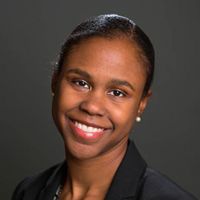 Tamarra James-Todd, MPH, PhD
Tamarra James-Todd, MPH, PhD
Mark and Catherine Winkler Associate Professor of Environmental Reproductive Epidemiology
Tamarra James-Todd’s research evaluates the link between environmental chemical exposures and diabetes, obesity, and related cardiovascular disease risk among women during the perinatal period and beyond. She has a particular focus on racial/ethnic disparities in environmental exposures and adverse pregnancy outcomes. She has served on the EPA’s Scientific Advisory Board for the Chemical Assessment Advisory Committee, as well as the National Academies of Sciences, Engineering, and Medicine’s Committee on Gulf War and Health. Dr. James-Todd is the Principal Investigator of the NIH-funded ERGO study, an ongoing prospective cohort study exploring the role of environmental factors on pregnancy and postpartum health. She also served as PI of the Greater New York Hair Products Study. Dr. James-Todd received her B.S. in molecular biology from Vanderbilt University; MPH in International Health from Boston University; and PhD in Epidemiology from Columbia University.
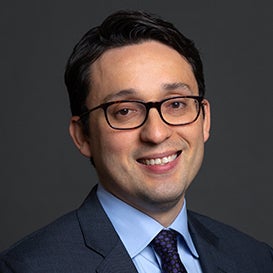
Jose F. Figueroa, MD, MPH
Assistant Professor of Health Policy and Management; Assistant Professor of Medicine, HMS
Jose F. Figueroa, MD, MPH is an Assistant Professor of Health Policy and Management at the Harvard T.H. Chan School of Public Health (HSPH) and an Assistant Professor of Medicine at Harvard Medical School (HMS). He is also a practicing Internist and Associate Physician at the Brigham and Women’s Hospital, where he serves as the Faculty Director of the BWH Medicine Residency Management & Leadership Pathway. His main research interests focus on understanding the drivers of health care spending and poor clinical outcomes among older, vulnerable populations with complex needs. To date, this has included work on racial and ethnic minorities, older adults with frailty, people with disabilities, and people with serious mental illness. His research also focuses on evaluating how policy interventions and payment reform aimed at improving quality of care and controlling costs are working, and in particular, how they affect safety-net providers and hospitals. Dr. Figueroa received his M.D. from Harvard Medical School and his M.P.H. from the Harvard T.H. Chan School of Public Health. He completed his residency in Internal Medicine at the Brigham and Women’s Hospital.
 Monik Jimenez, ScD
Monik Jimenez, ScD
Assistant Professor of Medicine, HMS
Monik C. Jiménez is an Associate Epidemiologist at Brigham and Women’s Hospital and Assistant Professor of Medicine at Harvard Medical School and Harvard T.H. Chan School of Public Health. She received both her master’s and doctoral degrees from Harvard T.H. Chan School of Public Health and a Certificate in Oral Epidemiology from Harvard School of Dental Medicine. Her work is centrally focused on the role of carceral control in creating and perpetuating racial/ethnic inequities in health. Her work aims to center the voices of directly impacted community members and she works with community advocacy groups to design, disseminate and conduct research focused on community-identified needs. She is also Program Director of the Brigham and Women’s Hospital STARS program, a summer research opportunity for underrepresented in medicine undergraduate students and is the course director of “Mass Incarceration and Health in the US” and “Cardiovascular Epidemiology” at Harvard T.H. Chan School of Public Health.
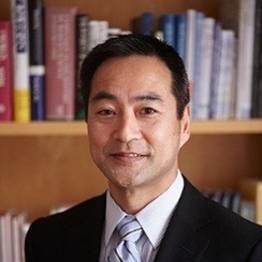 Ichiro Kawachi, MBChB, PhD
Ichiro Kawachi, MBChB, PhD
John L. Loeb and Frances Lehman Loeb Professor of Social Epidemiology
Ichiro Kawachi, MB.ChB., Ph.D., is the John L. Loeb and Frances Lehman Loeb Professor of Social Epidemiology at the Harvard T.H. Chan School of Public Health. Kawachi received both his medical degree and Ph.D. (epidemiology) from the University of Otago, New Zealand. He has taught at Harvard since 1992. Kawachi is the co-editor of the first textbook on Social Epidemiology, published by Oxford University Press in 2000. His other books include Neighborhoods & Health; Social Capital and Health with S.V. Subramanian & Daniel Kim; Behavioral Economics and Public Health with Christina Roberto; Social Epidemiology of Sleep; and the Oxford Handbook of Public Health Practice. Kawachi is the Co-Editor in Chief (with S.V. Subramanian) of the international journal Social Science & Medicine, as well as the sister open access journal, SSM – Population Health. He is an elected member of the Institute of Medicine of the US National Academy of Sciences, and an Honorary Fellow of the Royal Society of New Zealand.
Climate Change: Public Health Implications
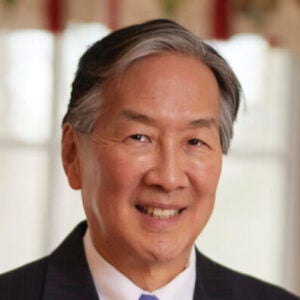 Howard Koh, MD, MPH
Howard Koh, MD, MPH
Harvey V. Fineberg Professor of the Practice of Public Health Leadership
Howard Koh is the Harvey V. Fineberg Professor of the Practice of Public Health Leadership at the Harvard School of Public Health and a Member of the Faculty at the Harvard Kennedy School. He has previously served as the 14th Assistant Secretary for Health for the U.S. Department of Health and Human Services (2009-2014) after being nominated by President Barack Obama, and as Commissioner of Public Health for the Commonwealth of Massachusetts (1997-2003) after being appointed by Governor William Weld. A graduate of Yale College and the Yale University School of Medicine, he has trained at Boston City Hospital and Massachusetts General Hospital, has earned board certifications in 4 medical fields, held major academic positions at Boston University and Harvard University, published more than 250 articles in the medical and public health literature and has received over 70 awards for accomplishments in public health, as well as five honorary doctorate degrees. He currently serves on the Board of Directors for the Journal of the American Medical Association (JAMA), the Community Anti-Drug Coalitions of America (CADCA), the Josiah Macy Jr. Foundation, The Network for Public Health Law and New England Donor Services.
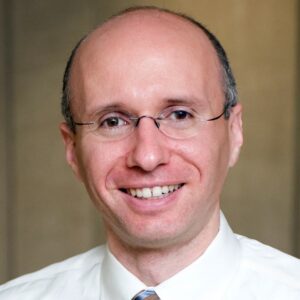 Aaron Bernstein, MD, MPH
Aaron Bernstein, MD, MPH
Interim Director, Harvard C-CHANGE; Assistant Professor of Pediatrics, HMS
Aaron Bernstein is interim director of the Center for Climate, Health, and the Global Environment at the Harvard T.H. Chan School of Public Health, a pediatrician at Boston Children’s Hospital, and an assistant professor of pediatrics at Harvard Medical School. He focuses on the impacts of the climate crisis on children’s health and on advancing solutions to address it. With Nobel Laureate Eric Chivian, Bernstein co-edited and authored the Oxford University Press book Sustaining Life, which was published in several foreign language editions and received the distinction of best biology book of 2008. At Harvard, his course “The Health Effects of Climate Change” explores how climate change influences health. It has been taught to thousands of students from more than 100 countries around the world. Bernstein serves on the American Academy of Pediatrics Council on Environmental Health executive committee, the board of scientific counselors to the CDC’s National Center for Environmental Health and Agency for Toxic Substances and Disease Registry, and the U.S. Green Building Council board of directors. He holds a bachelor’s degree from Stanford University, an MD from the University of Chicago, and an MPH from the Harvard Chan School.
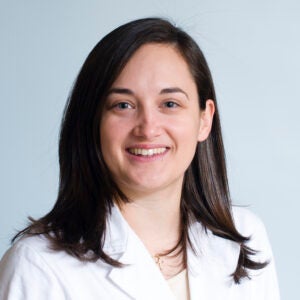 Renee Salas, MD, MPH, MS
Renee Salas, MD, MPH, MS
Yerby Fellow, Harvard C-CHANGE; Affiliated Faculty, Harvard Global Health Institute
Renee N. Salas is a Yerby Fellow at the Center for Climate, Health, and the Global Environment at Harvard T.H. Chan School of Public Health and Affiliated Faculty and a previous Burke Fellow at the Harvard Global Health Institute. She is also a practicing emergency medicine physician in the Department of Emergency Medicine at Massachusetts General Hospital and Harvard Medical School. Dr. Salas has served as the lead author of the Lancet Countdown on Health and Climate Change U.S. Brief since 2018 and founded and leads its Working Group of over 70 U.S. organizations, institutions, and centers working at the nexus of climate change and health. Dr. Salas was also a Co-Director for the first Climate Crisis and Clinical Practice Symposium and co-leads the broader Initiative in partnership with The New England Journal of Medicine. Dr. Salas was elected to the National Academy of Medicine (NAM) in 2021 for her work on climate change and health. She served on the original planning committee for the NAM’s Grand Challenge on Health and Climate Change and continues to serve on committees related to this work. She has testified before Congress for the full House Committee on Oversight and Reform on how climate change is harming health. Dr. Salas engages in research on how climate change is impacting the healthcare system and developing evidence-based adaptation.
Preparing for the Next Public Health Crisis
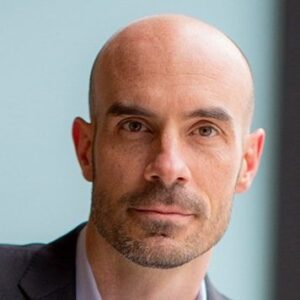 Joseph G. Allen, MPH, DSc
Joseph G. Allen, MPH, DSc
Associate Professor of Exposure Assessment Science
Joseph G. Allen is Director of the Healthy Buildings program and an Associate Professor at Harvard’s T. H. Chan School of Public Health. Before joining the faculty at Harvard, he spent several years in the private sector leading teams of scientists and engineers to investigate and resolve hundreds of indoor environmental quality issues, including “sick buildings,” cancer clusters, and biological/chemical hazards. His academic research focuses on the critical role the indoor built environment plays in our overall health. One of the world’s leading experts on healthy buildings, Dr. Allen is a regular keynote speaker and advises leading global companies. He is the c0-author of Healthy Buildings (Harvard University Press; 2020)

Barry Bloom, PhD
Joan L. and Julius Jacobson Professor of Public Health, Emeritus
Barry Bloom is recognized as a pioneer in the field of global health. Trained in immunology, he has made important contributions to infectious diseases, vaccines, and global health policy. His lifelong commitment has been to bring knowledge and methods of cutting edge basic science to alleviating the burdens of disease in developing countries. His research has been primarily focused on the immunology and pathogenesis of leprosy and of tuberculosis, which remains the largest cause of death from an infectious disease, with 9.6 million new cases and 1.5 million deaths per year. Dr. Bloom came from the Albert Einstein College of Medicine in New York to the Harvard T.H. Chan School of Public Health as Dean of the Faculty in 1999, which he served for a decade. He received the first Bristol-Myers Squibb Award for Distinguished Research in Infectious Diseases, shared the Novartis Award in Immunology in 1998, and was the recipient of the Robert Koch Gold Medal for lifetime research in infectious diseases. Dr. Bloom was elected to membership in the US National Academy of Sciences, National Academy of Medicine, and the American Philosophical Society.
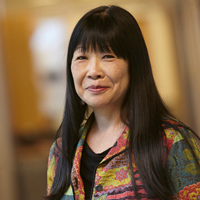 Phyllis Kanki, DVM, DSc
Phyllis Kanki, DVM, DSc
Mary Woodard Lasker Professor of Health Sciences
Phyllis Kanki, DVM, DSc has been a professor of Immunology and Infectious Disease at the Harvard T.H. Chan School of Public Health since 1999. Her research centers on the virology, pathogenesis and molecular epidemiology of HIV in Africa. Based on long-term research collaborations in Senegal for over 24 years, her work provided the initial characterization of HIV-2, demonstrated reduced virulence, transmission and progression to disease and interactions with HIV-1 subtypes from West Africa. Since 2000, Dr. Kanki has led the AIDS Prevention Initiative in Nigeria (APIN), a program funded by the Bill & Melinda Gates Foundation. Under her leadership, APIN researchers are modeling their approach to HIV prevention in Nigeria on Dr. Kanki’s long-term collaboration with Senegal, where HIV infection rates have been kept lower than those of the rest of the continent for more than a decade. This provided the collaborative foundation for the Harvard President’s Emergency Plan for AIDS Relief (PEPFAR) providing prevention, care and HIV antiretroviral therapy in Nigeria, Botswana, and Tanzania (2004-2012). To date, in addition to the capacity building for clinical, laboratory and research capabilities, the program has provided treatment for over 150,000 AIDS patients.
Eric J. McNulty, MA
Associate Director, National Preparedness Leadership Initiative
Eric J. McNulty holds an appointment as Associate Director for the Program for Health Care Negotiation and Conflict Resolution and at the National Preparedness Leadership Initiative, a joint program of the Harvard Chan School and the Harvard Kennedy School of Government. He is an Instructor at the Harvard T.H. Chan School of Public Health. His work centers on leadership in high-stakes, high-stress situations. He teaches graduate-level courses on public health leadership, conflict resolution, and negotiation as well as serving as Program Co-director for the Leading in Health Systems executive education program at the Chan School. He also teaches in executive education programs at Harvard Medical School, MIT, and UC San Diego Health. McNulty is the principal author of case studies on leadership decision-making in the Boston Marathon bombing response, innovation in the response to Hurricane Sandy, and the professional/political interface in the Deepwater Horizon response drawing upon his firsthand research as well as extensive interviews with leaders involved in the responses. He has written more than 200 bylined articles for the Harvard Business Review (HBR), Sloan Management Review, strategy+business, and other publications as well as several peer-reviewed journals. His HBR cases have been anthologized through the HBR paperback series and have been used in business education curricula in the United States and as far away as France and the Philippines.




